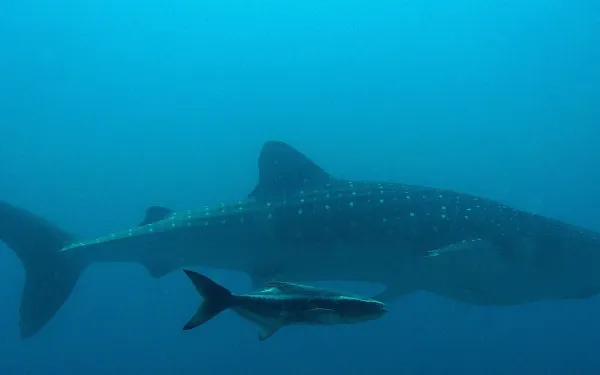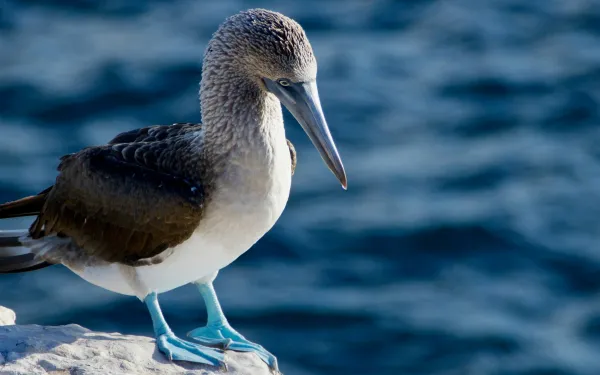
Project
Photo: Steven Ablitt / Cassiar WatchVictory: Canada supports public participation and environmental assessment
Thanks to a court ruling to which AIDA and our allies contributed, Canadian authorities must allow active participation in all mining and industrial megaprojects, as well as comprehensive environmental impact assessments.
The decision came after a long legal battle that began in 2006. That year, an open-pit copper and gold mine called Red Chris was approved without the adequate evaluation of its environmental impacts. It was sleighted to process 30 thousand metric tons a day.
The Imperial Metals company intended to build the mine in the Kapplan River Valley, a remote and pristine natural area home to large mammals such as Dali’s sheep, caribou, bears and moose. In addition, the area is part of the migratory salmon route and the Tathlan indigenous community lives nearby.
The company had fragmented the project into small parts to avoid evaluating the full impact of the project, thus violating international standards and the right to public participation.
In 2009 AIDA filed a brief with Canada’s Supreme Court in support of a lawsuit filed against the project by MiningWatch and Ecojustice.
The ruling remains a powerful tool to protect huge expanses of pristine and valuable land for its biodiversity, water sources, and the culture of indigenous communities.
It was a watershed moment in terms of ensuring companies fulfill their obligations when developing projects that put at risk the natural environment and those who depend on it.
Related projects

Historic High Seas Treaty enters into force, launching a new era of global ocean governance
New York. Today the High Seas Treaty, formally the Agreement on the Conservation and Sustainable Use of Marine Biological Diversity of Areas Beyond National Jurisdiction (BBNJ), has officially entered into force, marking a historic milestone for global ocean protection and multilateral cooperation.Covering nearly half the planet, the High Seas lie beyond national borders and form part of the global commons. The United Nations Treaty establishes, for the first time, a legal framework to protect biodiversity in these international waters and to ensure the benefits of their resources are shared fairly among nations. "The entry into force of the BBNJ Agreement today stands as a monument to multilateralism and to the years of dedication, dialogue and cooperative action by countless committed people around the world. Global challenges, such as the climate and biodiversity crises, affect all of us. As such, global cooperation is not a choice, it is a necessity. This Treaty embodies hope, resolve, and a shared commitment to a brighter future for the ocean and our planet," said Singapore’s Ambassador for International Law Rena Lee, who served as President of the Treaty negotiations and was pivotal in guiding states to its successful adoption in 2023.With entry into force, the Treaty now provides the tools to create marine protected areas (MPAs) on the High Seas, set clear obligations on how to ensure ocean resources are used sustainably, capacity building and access to technology and tools is prioritised, and mechanisms are established to ensure fair benefit-sharing. This will play a crucial role in achieving global biodiversity and climate goals, including the target to protect 30% of the ocean by 2030.Following two decades of discussions and negotiations, the Treaty text was finalised in March 2023. Sixty country ratifications were required for it to enter into force- a milestone that was reached on 19 September 2025. Today, 120 days later, the Treaty officially becomes international law, and its first Conference of Parties (CoP), the Treaty’s decision-making body, is set to meet within a year."The High Seas are full of life- from tiny plankton all the way up to the great whales that rely on them. We’re only just beginning to understand how important this vast, interconnected world is for the health of our entire planet. Whether it’s underwater mountains, deep-sea plains and trenches, the icy polar waters, or the open-ocean highways that migratory species travel, the High Seas are as vital as they are immense. With the High Seas Treaty now coming into force, we finally have the tools to safeguard this extraordinary part of our planet. Protecting it really does mean protecting our future," said Rebecca Hubbard, Director of the High Seas Alliance.Several legal obligations apply from today. While some of them are dependent on the set up of the Treaty’s institutions and mechanisms, there are some actionable examples from day one, including any planned activity under a Party’s control that could affect the High Seas or seabed must follow the Treaty’s environmental impact assessment processes, and governments need to publicly notify such activities. Parties must also promote the Treaty’s objectives when participating in other bodies such as those that govern shipping, fisheries and seabed mining.Ultimately the Treaty’s true power will depend on how it is collectively implemented and upheld in the years ahead. A broader membership will make it more impactful. With 82 (1) parties already on board, momentum is building and more countries are encouraged to join ahead of CoP1. Meanwhile, the Treaty’s institutional architecture- its bodies and decision-making processes- is currently being shaped through the UN Preparatory Commission, which must deliver strong proposals for adoption at CoP1 so the Treaty can start functioning as soon as possible. Countries are also encouraged to begin identifying important High Seas sites that require protection, so proposals can be brought forward at future CoPs. "At this halfway point of this critical decade, one of the world’s most ambitious ocean initiatives is entering a new era of systemic change in ocean governance. This reflects a renewed commitment to our ocean, its wildlife, the millions of people that rely on its health, and the global goals set for 2030. The High Seas Treaty shows us that meaningful progress is achieved through vision, perseverance and leadership. As we begin a new year, The Earthshot Prize is committed to backing this landmark Treaty and ensuring it moves beyond words to become a practical and enforceable safeguard for our remarkable blue planet," said Jason Knauf, CEO of The Earthshot Prize. (1) As of 14 January 2026, there are 82 ratifications of the BBNJ Agreement. More states may ratify in the coming days. Please check the most up-to-date number on the UN website.AIDA's quote"AIDA welcomes the entry into force of the High Seas Treaty, a landmark achievement for global ocean governance and protection. The Agreement enables progress toward the effective implementation of the principle of the common heritage of humankind and strengthens capacity building and technology transfer, key elements for ensuring equitable participation across all regions, particularly in Latin America. AIDA will continue to support the Treaty’s implementation and global engagement, for the benefit of the ocean and the communities that depend on it". – Gladys Martínez de Lemos, Executive Director of the Interamerican Association for Environmental Defense (AIDA).Notes to editorsSince its founding in 2011, the High Seas Alliance, with its 70+ non-governmental members, has been working towards protecting the 50% of the planet that is the High Seas; the global ocean beyond national jurisdiction. This area includes some of the most biologically important, least protected, and most critically threatened ecosystems in the world.The official status of signatures and ratifications can be found on the UN website and the High Seas Alliance’s ratification tracker. Note: The number shown on the High Seas Alliance tracker reflects only the ratifications that count toward entry into force and does not include the EU’s ratification and therefore differs from the UN’s total count. The High Seas Alliance (HSA) sometimes uses the term “High Seas Treaty“ as a short-hand for the BBNJ Agreement. HSA acknowledges that the scope of the BBNJ Agreement encompasses all Areas beyond national jurisdiction, including the seafloor and water column. This choice of wording is intended to ease understanding for broad audiences and does not convey a prioritization among the components or principles of the BBNJ Agreement.In November 2025 the High Seas Treaty was announced as the winner of the prestigious Earthshot Prize in the “Revive our Oceans” category, recognizing the decades-long efforts to put in place a groundbreaking legal framework to protect marine biodiversity in international waters. Media packThe following folder contains the following resources: High Seas Treaty Q&ABriefing Note: Legal Implications of the Impending Entry into Force of the BBNJ AgreementMPA factsheetPrepCom factsheetA cost-benefit analysis of the BBNJ Agreement in the CaribbeanRecording of the Media Briefing “A historic moment: High Seas Treaty’s entry into force” held on 13 January 2026. Video: Celebrating the Entry into Force of the High Seas Treaty
Read more
10 environmental news stories to end 2025 on a hopeful note
We are nearing the end of a complex year, and taking stock seems daunting. Multilateralism is faltering as environmental crises worsen and urgently demand decisive action.In such turbulent times, it is worth taking stock of what we, as humanity, have achieved in building a more just and sustainable world for all who inhabit it.2025 will be remembered as the year when an underwater expedition thrilled us in real time, when we celebrated the implementation of agreements to protect life in the ocean, and when international court rulings transformed the pursuit of justice to protect people and the environment from the climate emergency.These are some of the environmental victories that this year has left us with, and they deserve to be celebrated, just as we honor the fire that shines in the darkness. Because even with small lights, we can continue to illuminate a path of hope toward environmental and climate justice. 1. International courts issued landmark decisions for climate justiceThe Inter-American Court of Human Rights and the International Court of Justice released their respective advisory opinions on the climate emergency. Both decisions clarified the obligations of states to protect the rights of people and nature in the face of the climate crisis.These decisions are part of an unprecedented global movement for climate justice, which also includes the advisory opinion issued in 2024 by the International Tribunal for the Law of the Sea and similar future decisions, such as the one expected from the African Court on Human and Peoples' Rights.Learn More: Dialogue Earth 2. Climate litigation exceeded 3,000 cases worldwideClimate litigation reached 3,099 cases worldwide, according to a report by the Sabin Center for Climate Change Law and the United Nations Environment Program. Although climate litigation in countries in the global south is still in the minority (9.8% of the total documented), it has grown steadily. Brazil stands out as the third country with the most cases in the world (135), and other Latin American countries (Mexico, Colombia, Argentina, and Chile) are among the top 15 with the most cases reported.This growth demonstrates the increasing use of strategic litigation to promote concrete action on the causes and consequences of the climate crisis.Learn More: Sabin Center for Climate Change Law 3. Colombia declared its part of the Amazon free from oil and large-scale mining activitiesDuring the 30th UN Climate Change Conference (COP30), Colombia declared the entire Colombian Amazon region a zone free from oil and large-scale mining activities, announcing it as a "reserve zone for renewable natural resources."The decision implies an unprecedented limitation on the expansion of mining and hydrocarbon activities in more than 48 million hectares, equivalent to 7% of the entire Amazon region. It is also a call to other Amazonian countries to follow suit.Learn More: InfoAmazonia 4. Countries create a global mechanism to promote a just energy transitionAn important step forward at COP30 was the adoption of the Belém Action Mechanism, created within the framework of the Just Transition Work Program.The mechanism will function as a coordinating space to centralize global initiatives, offer technical assistance, and strengthen international cooperation. It is an achievement driven by civil society to promote ambitious climate action and a transition that does not repeat the mistakes of the fossil fuel era.Learn More: AIDA and The Climate Reality Project América Latina 5. An underwater expedition in Argentina marked a scientific and technological milestoneThe expedition "Underwater Odel Plata Canyon: Talud Continental IV," led by scientists from Argentina's National Scientific and Technical Research Council, in collaboration with the Schmidt Ocean Institute, explored the deep ocean in the Mar del Plata submarine canyon for 21 days, while broadcasting live on YouTube and Twitch.The result: 40 new marine species and an unexpected diversity of cold-water corals were discovered, findings that were seen and celebrated in real time by millions of people.Learn More: CONICET 6. The High Seas Treaty will finally enter into forceIn a process that took more than two decades, the High Seas Treaty this year reached the 60 ratifications needed to trigger its entry into force, which will occur on January 17, 2026. This binding agreement allows for the protection of the part of the ocean outside of national boundaries, almost half of the planet, through the creation of marine protected areas in international waters and the conduct of environmental impact assessments of planned human activities on the high seas. This is a historic milestone for the protection of the ocean and the well-being of millions of people in Latin America and around the world.Learn More: AIDA 7. Implementation begins on agreement ending harmful fisheries subsidiesThe World Trade Organization's Agreement on Fisheries Subsidies came into force in September this year. It is the first multilateral trade treaty to prioritize environmental sustainability, as well as a milestone in ensuring food security and the livelihoods of coastal communities.The agreement prohibits government subsidies that promote illegal fishing and the depletion of overexploited stocks.Learn More: WTO 8. Green sea turtles are no longer considered an endangered speciesAfter decades of decline, the population of green sea turtles is recovering. The International Union for Conservation of Nature no longer considers them endangered and has reclassified them as a "species of least concern."This sea turtle population has increased thanks to decades of conservation work to protect nesting areas, reduce capture, and prevent bycatch. AIDA was part of these efforts, protecting them in the 1990s from hunting—which was legal at the time—in Costa Rica.Learn More: AIDA and IUCN Red List 9. Protection of key ecosystems around the world, including the Galapagos, is growingUNESCO added 26 new biosphere reserves in 21 countries, the highest number in 20 years, and approved the expansion of 60,000 square kilometers in the Galapagos Biosphere Reserve in Ecuador to incorporate the Hermandad Marine Reserve. This will protect the area where dozens of marine species, many of them protected, transit, and which is considered one of the most diverse ocean corridors in the world.Learn More: LaderaSur and Government of Ecuador 10. Deforestation decreased in Afro-descendant territories in Latin AmericaAfro-descendant communities in Brazil, Colombia, Ecuador, and Suriname have significantly reduced their deforestation rates, according to new research from Conservation International.The study showed that Afro-descendant communities are critical to environmental conservation, as 56% of their lands are located in the 5% of the world with the highest biodiversity.Learn More: Conservation International
Read more
Our Contribution to Environmental Justice in 2025
At AIDA, one of our core pillars is using the law strategically — backed by science and international advocacy — to set important precedents that protect the environment and human rights across Latin America.This year, our work helped strengthen both regional and global legal frameworks so they can better respond to the social and environmental challenges we face today.These advances led to the creation of key legal tools that open new opportunities to defend communities and their territories, protect the region’s biodiversity, and hold governments and companies accountable.The progress we saw in 2025 highlights the transformative power of law, science, and the collective strength of communities when they work together. 1. Two new global treaties restore hope for the ocean — and for all of usThis year brought two historic achievements that could change the future of the ocean, and our own.The first is the ratification of the High Seas Treaty, which will take effect in January 2026. This legally binding agreement creates shared rules and a system of multilateral governance for the ocean areas beyond national jurisdiction — nearly half the planet.The second milestone is the entry into force of the World Trade Organization’s Agreement on Fisheries Subsidies. For the first time, a multilateral trade treaty puts environmental sustainability front and center by banning government subsidies that fuel illegal fishing and the depletion of overfished stocks.AIDA played an important role in ensuring Latin America’s perspectives were reflected in both agreements. We provided technical support to government representatives throughout the process, and we continue working to make sure these treaties lead to real, effective action across the region.Learn More 2. Maya community in Guatemala achieves a landmark environmental victoryIn Chinautla, Guatemala, the Poqomam Maya community won an unprecedented court ruling over decades of river pollution that violated their rights. The court ordered the municipality to carry out studies, programs, and plans to reduce pollution — and to ensure the community is involved every step of the way.This is the first time a court in Guatemala has recognized both a people’s right to a healthy environment and their central role in finding solutions. The ruling could inspire other municipalities along the Motagua River, the country’s longest river, where pollution also threatens the Mesoamerican Reef.Beyond providing legal support, AIDA helped the community document illegal dumping that harmed their water sources. This hands-on “community science” effort played a crucial role in both the lawsuit and the historic ruling.Learn More 3. Corte Interamericana marca un antes y después para la justicia climáticaOn July 3, the Inter-American Court of Human Rights issued its long-awaited Advisory Opinion 32 on human rights and the climate emergency — a landmark moment for climate justice both regionally and globally. The Court clarifies the legal obligations of states to protect people and communities affected by the climate crisis, opening new pathways for justice in national and international courts, climate negotiations, and public policy advocacy.For the first time, the Court recognized the right to a healthy climate and affirmed that states have a duty to prevent companies from violating human rights in the context of climate change.Ahead of this decision, AIDA helped amplify the voices of communities across the region, facilitating their testimony before the Court and presenting our own arguments for recognizing the right to a stable and safe climate.Learn More Discover the stories behind these victories and our full review of the year in our 2025 Annual Report.
Read more